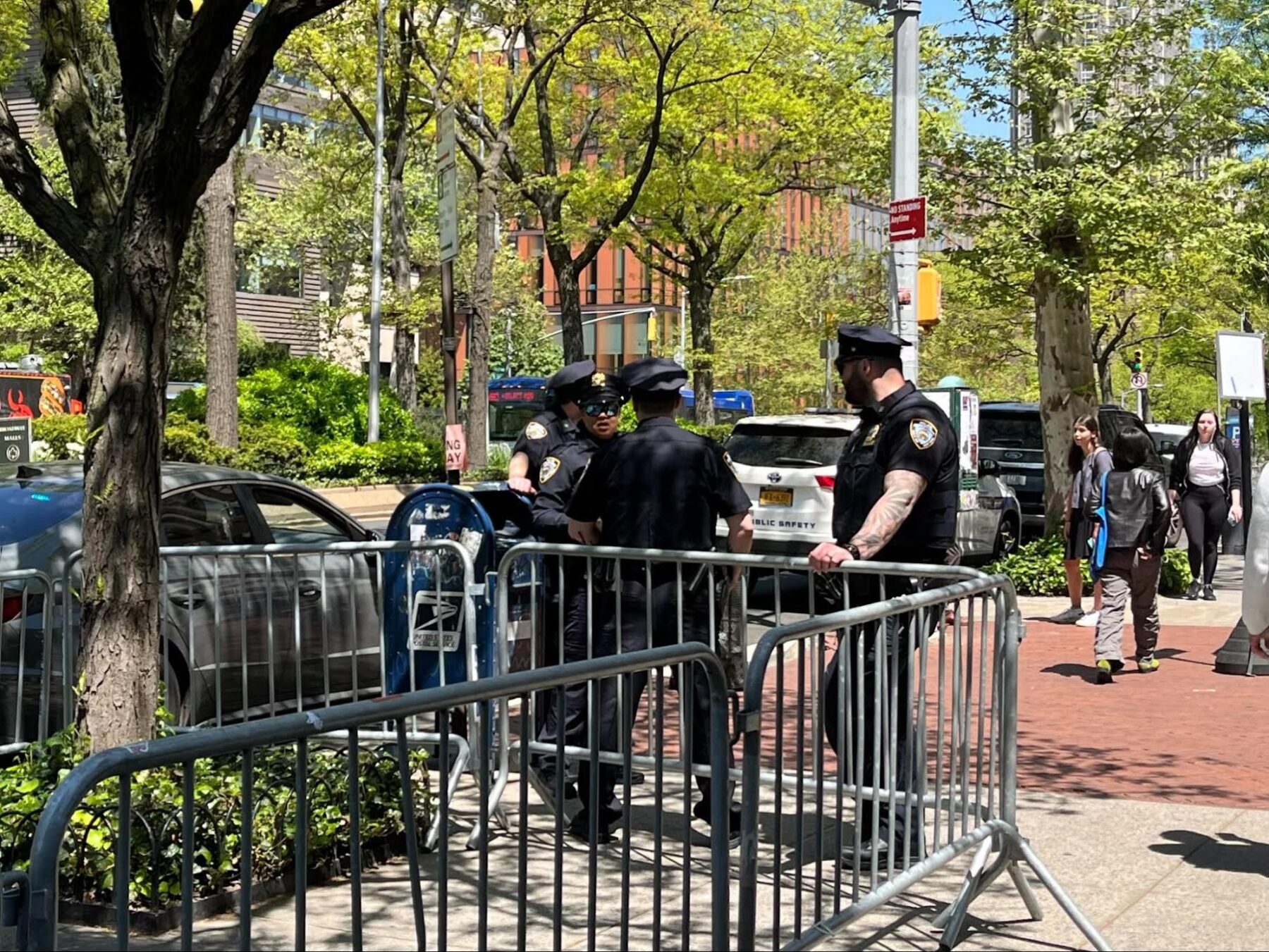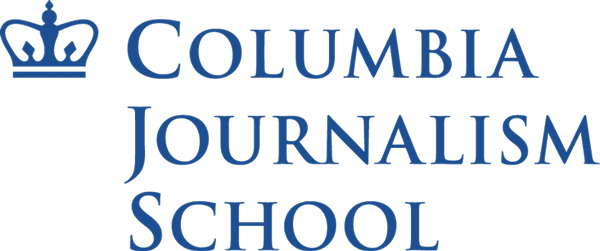
NYPD officers at Columbia gate on May 1. (Credit: Thomas Li)
During the night of April 30, helmeted New York City police officers marched onto Columbia’s campus, entering Hamilton Hall through a second-story window before they arrested numerous protesters occupying the building, following a directive from the university’s administration to dismantle the encampment. This police action comes after two weeks of tension between pro-Palestinian demonstrators and university officials, who had previously threatened disciplinary actions against participating students.
Many of these students now face suspension or expulsion, according to an email from the president’s office. Those forms of discipline could come with particularly severe consequences for international students, according to interviews with immigration lawyers.
This decision has ignited discussions within the academic community, especially regarding its repercussions for students involved in the protests.
International students studying in the U.S. must obtain a valid student visa. The main visa types for students are the F-1 and J-1 visas. These visas allow international students to stay in the U.S. for the duration of their academic program, along with a grace period after completion to prepare for departure from the country.
Adam Green, an immigration attorney, highlighted the distinct risks faced by students on F-1 and J-1 visas if they receive serious charges, which could potentially jeopardize their future possibility of entering the country.
“If the person gets busted instead of suspended, for example, they throw a rock at a cop,” Green said. “Any arrest that leads to the taking of fingerprints means that U.S. consulates will be notified, and they will generate a new mail to that student saying that the visa is terminated. If they leave the U.S. and then come for vacation, this could be a problem.”
“These people are playing with their future,” said Green.

Elizabeth Goss, immigration attorney and CEO at Goss Associates, said that if an international student is suspended, the university must update their status in the Student and Exchange Visitor Information System (SEVIS) within 21 days of the change. The changes in students’ statuses have to be the final action, which could potentially lead to the termination of their visas by Immigration and Customs Enforcement (ICE).
“Not all suspensions are final. In some schools, they can get suspended but they have a hearing. They are not finally suspended. Academic warnings, hearings, appeals. The institution of Columbia controls the whole thing,” Goss added.
It’s important to understand that the stamp on a passport is just for entry, according to the Law Office of Karin Wolman. The real F-1 status is recorded in the SEVIS database. If ICE or United States Citizenship and Immigration Services (USCIS) formally revokes this status, individuals could start accumulating “unlawful presence.” This may lead to serious implications such as ineligibility for change of status or extension of stay, or reinstatement to F-1 status within the U.S.
Meanwhile, on April 29, student organizers informed protesters present in the encampments of the risks of staying in the encampment.
“Again, we said this before, but if you are in a high-risk category, if you’re here on an F-1 or J-1 visa, if you’re an international student, we just want to make sure that you are highly considering and have the information to decide whether you want to stay or not,” said one of the organizers during the morning announcement. “Because there are different implications if you are suspended because of that.”
Some chose to stay. Isaac Chen, an international student from China, told Columbia News Service that he has been supporting the encampments. He was not sleeping on the campsite, but he had done different tasks for the encampment such as security, cleaning, carrying supplies, talking to journalists, and other miscellaneous activities. He confirms that organizers have informed him of his higher-risk status.
“We’ve been fully warned by the organizers of the potential legal risks in general and also in particular with regards to our student visa,” he said.
Michael Musa-Obregon, partner at Musa-Obregon, reinforced that if a student was only engaged in peaceful protesting, they are protected by the First Amendment. “Immigration in itself would not revoke a student generally because a student was involved in First Amendment rights,” he said. “It is not First Amendment speech only for Americans, it is First Amendment speech for everyone who lives here.”
The type of charge matters. While students would still need to disclose an arrest and dismissal in future visa applications, a misdemeanor does not impact their immigration statuses. However, any involvement in violence could potentially trigger more severe consequences, including visa termination, according to Goss.
If a student becomes involved in anything that constitutes a felony, it raises significant concerns. Goss emphasized her heightened apprehension about the possible involvement of international students in the occupied building.
“Stay clear of anybody escalating violence,” Goss said. “If there is any sort of escalation, even if they are not involved, things can get out of control, and they might get scoped.”
Columbia News Service requested comment from the Office of Communications and the International Students and Scholars Office (ISSO) at Columbia; neither responded to an inquiry about whether any international students were suspended by the school or arrested during the police raid.
To reinstate their student status, students can try to transfer to a new school. The new school must issue a new Form I-20, which may lead to complications as the school will likely inquire about the student’s current status. The school needs to submit a request to restore a student’s status to authorities such as USCIS. Alternatively, the student may need to depart the US, apply for a new visa at a consulate abroad, and return.
“Small chance of the consulate giving a new visa,” Green said. “USCIS reinstatement is 50/50 chances.”
Correction: A previous version of this story misspelled Elizabeth Goss’ surname.
About the author(s)
Thomas Li is a journalist and M.S. Data student at the Columbia Journalism School. He covers business, tech and climate change.
Renata Daou is a graduate student currently pursuing an M.S. degree in data journalism at the Columbia Journalism School. She covers religion, education, and immigration.
Julie Zhu is a bilingual journalist pursuing an M.S. degree in data journalism at the Columbia Journalism School, covering education, immigration, and social issues in New York.



